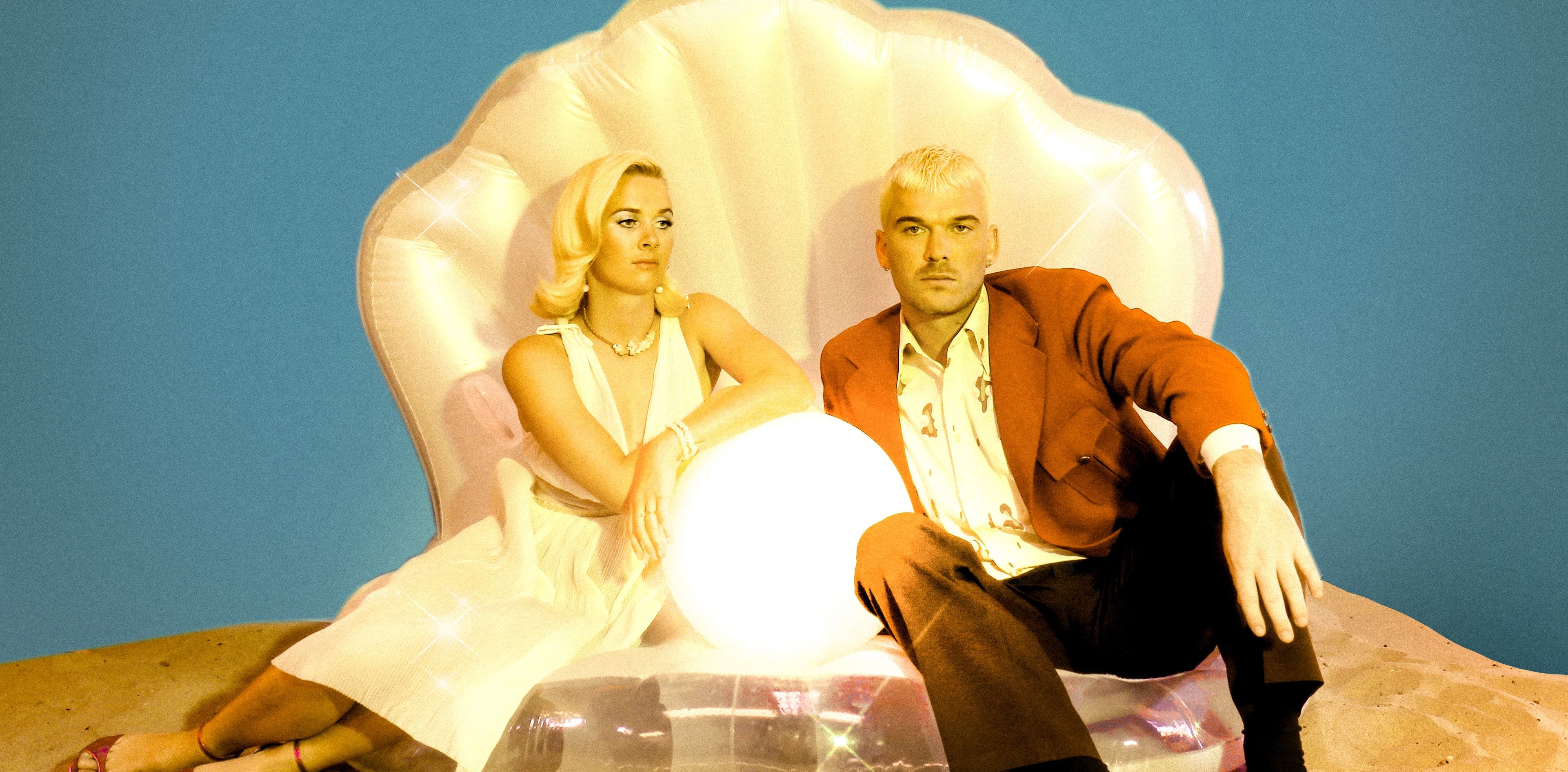Broods escapes industry-regulated pop standards on ‘Don’t Feed the Pop Monster’

Broods
Don’t Feed the Pop Monster
Atlantic Records · February 1, 2019
The title of Broods’ third full-length album is somewhat confusing at first glance: Don’t Feed the Pop Monster. One may ask, exactly what or who is the Pop Monster? If you’ve been following the brother-sister duo since their entrance to the New Zealand pop scene in 2014, you might have a better idea of what they are referring to. The alt-pop group was poised for worldwide success after releasing their debut album, Evergreen, which debuted at No. 1 on the New Zealand chart. However, after failing to receive that same commercial success in the United States with the release of their second album in 2016, Broods was dropped by their US label, Capitol Records.
The Pop Monster, then, according to Broods, is the pressure to comply to industry-regulated pop standards, or “doing stuff that we didn’t really want to do,” as frontwoman Georgia Nott mentioned in a year interview with triple j. But with the release of Don’t Feed the Pop Monster, that pressure to comply has worked in some sort of backward way – this experimental synth-pop album is Broods at their best.
The two opening tracks, “Sucker” and “Why Do You Believe Me?” set the tone for what will be an extremely diverse listening experience. “Sucker” establishes the tone of the album as Georgia sings over hurried synths about how quickly she became duped by the pop industry: “I’m such a sucker for everything / I catch the bug, get sick, get well.” On the other hand, “Why Do You Believe Me?” is slower and stripped down, with the main melodies existing in Georgia’s processed voice, led along by production that stops and starts abruptly.
Moving into the first single off the album, “Peach,” Broods showcases a Georgia’s happy-go-lucky persona as she begins the singing in a quiet, pared-down voice, suddenly jumping to an abrasive, high-pitched mousy shriek, as she says, “I’m high and I’m low, no control / But everything’s looking peach now.” The song then moves into an explosion of sound as Broods continue to celebrate their newfound musical freedom.
Other songs on the record further highlight this mish-mash of low and high energy, though the tracks do seem to lean more towards the somber end of the spectrum. Songs like “Falling Apart” and “Every Time You Go” are laid-back but with enough melodic variety to make for an easy listen. It is a bit disappointing, however, to be faced with so many darker sounding songs like “Dust” and “Too Proud,” before moving to the more energetic side of the record.
“Old Dog” packs a punch unlike any other in Broods’ entire discography. The scrappy, garage-rock-esque track is straight up fun to listen to, from Georgia’s distorted but strangely sensual vocals to the groovy accompaniment complete with guitar riffs and jingling bells. Even the lyrics are ridiculous but seem to fit the absurdity of the track itself: “I’m an old dog now / Tried to wash off my fleas / Get your piss off my trees.” Other tracks like “Hospitalized” and “Everything Goes (Wow)” continue to play on playful, funky pop melodies and arrangements, and it makes one wish that Broods had put more of these kinds of tracks on the record.
Don’t Feed the Pop Monster does a pretty good job of highlighting the newfound diversity in Broods’ sound. The almost six-minute long track “To Belong” – which lands right in the middle of the record – is basically a soundscape of the duo’s musical abilities all on its own. Starting with simple choral harmonies, the track begins to build on itself, adding a sticky bass line, then sparse drums, and then a bright acoustic guitar. Moving out of the first chorus, the song drops in some haunting synths and more choral harmonies, and this all happens in the first two minutes. It’s a track unlike anything Broods has never done before and maybe one that they could never have executed prior to this release. This simple notion really exemplifies the fact that Broods seems to have escaped the Pop Monster once and for all.